ABOUT MESP® TECHNOLOGY
MESP® AIR PURIFICATION AND STERILIZATION TECHNOLOGY
— A New Generation Air Purification Technology —
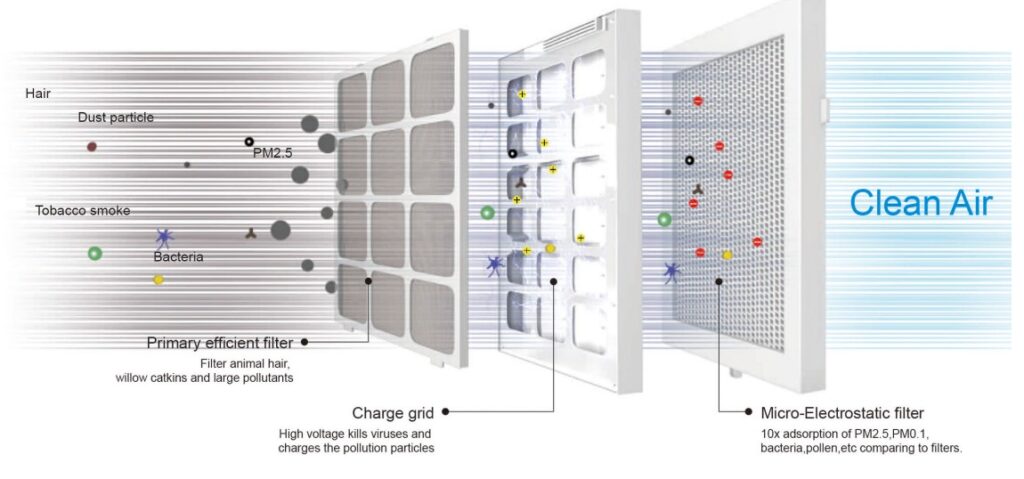
It effectively removes airborne particles like PM2.5, fungus, dust, pollen, soot, and smoke while powerfully deactivating viruses and bacteria. MESP technology is an innovative upgrade from ESP (Electrostatic Precipitator) technology. Compared to ESP, MESP has 10 times the purification capacity and solves the ozone generation problem, arc and spark.
THE WORKING PRINCIPLE
In the MESP system, airborne particles in propelled air flow are electrically charged before passing into a honeycomb-like filter. The filter is formed by layers or rows of tubes, which only have 1.8 mm inner spacing and each row contains thin electrode sheets with insulation coating that generate intense electrical fields within the tubes. Charged particles – pollutants, bacteria, germs, viruses – are pulled to the walls of the tubes – and firmly stick. As the filters and charge grid are built closely together, particle movement is shortened by 8 times, and almost 100% of airborne particles can be captured and eliminated with dielectric.
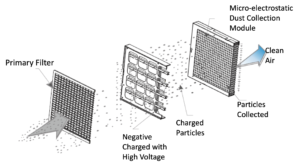
The polymer tube’s insulation material prevents current from flowing between electrodes even though with an intense electric field. The unique volt-ampere characteristic curve of MESP technology leads to the result: high voltage and extremely low current without the potential dangers of electrode damage and electric shock, which are traditional ESP product weaknesses.

The unique nano PP-made filter is washable, with a lifespan exceeding 10 years with just a small attenuation effect. The total running cost should be much lower than traditional media filters.
THE SCHEMATIC DIAGRAM OF MESP
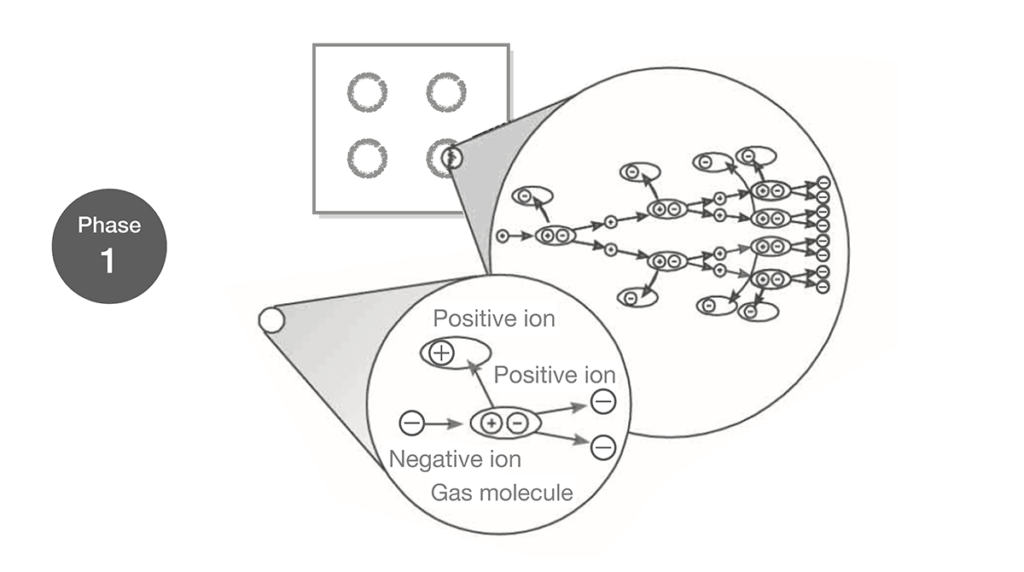
MESP uses a charge grid to generate a corona discharge and release high energy electronics with a voltage of -10.2KV. These electronics form an avalanche effect and generate more and more electronics. Finally they collide with air molecules to generate lots of negative ions.

Once away from the corona zone, the negative ions are attracted to the surrounding air, negatively charging the gas molecules, which then move towards the MESP positive plate under the action of a strong electric field.
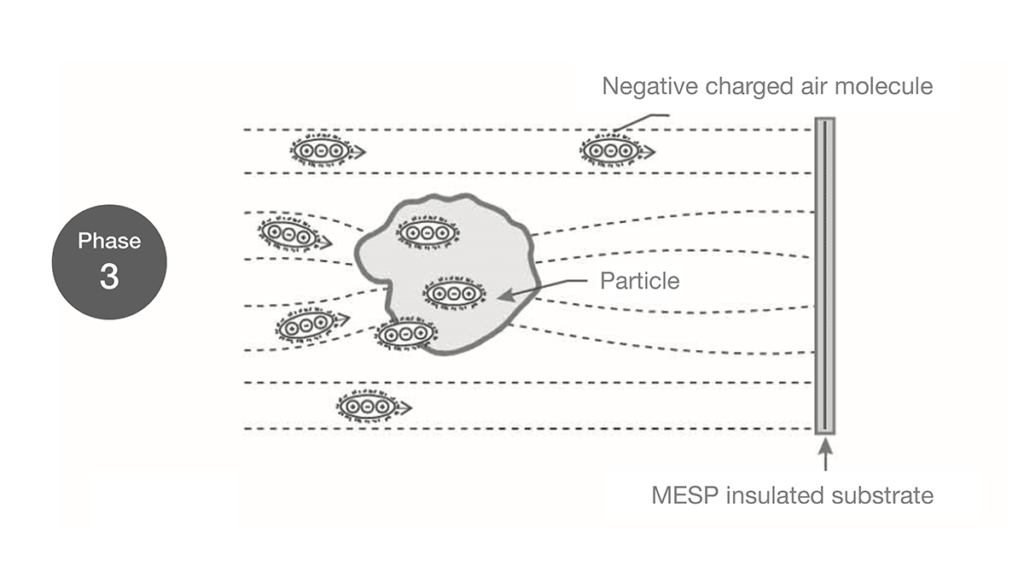
The fine particles will block the negatively charged air molecules from flying and stick them together. The fine particles continue to absorb negatively charged molecules until they are saturated. The fine particles thus carry enough negative charges.

Once the fine particulates carry enough negative charges, they move to the positive plate under the action of the dense MESP matrix electric field – and are firmly attracted by it.
HOW MESP KILLS VIRUSES AND BACTERIA
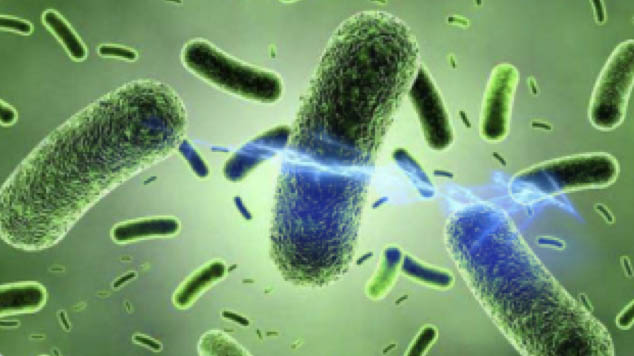
The fine particles will block the negatively charged air molecules from flying and stick them together. The fine particles continue to absorb negatively charged molecules until they are saturated. The fine particles thus carry enough negative charges.

Once the fine particulates carry enough negative charges, they move to the positive plate under the action of the dense MESP matrix electric field – and are firmly attracted by it.
